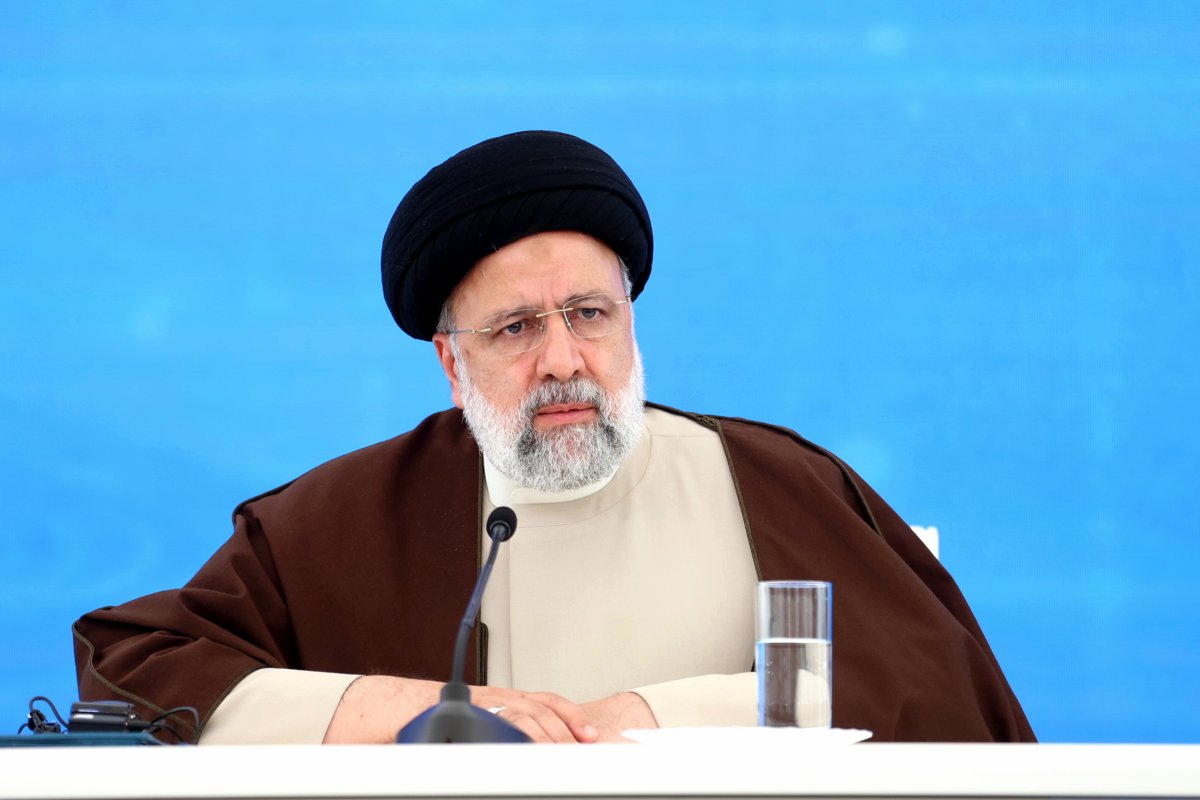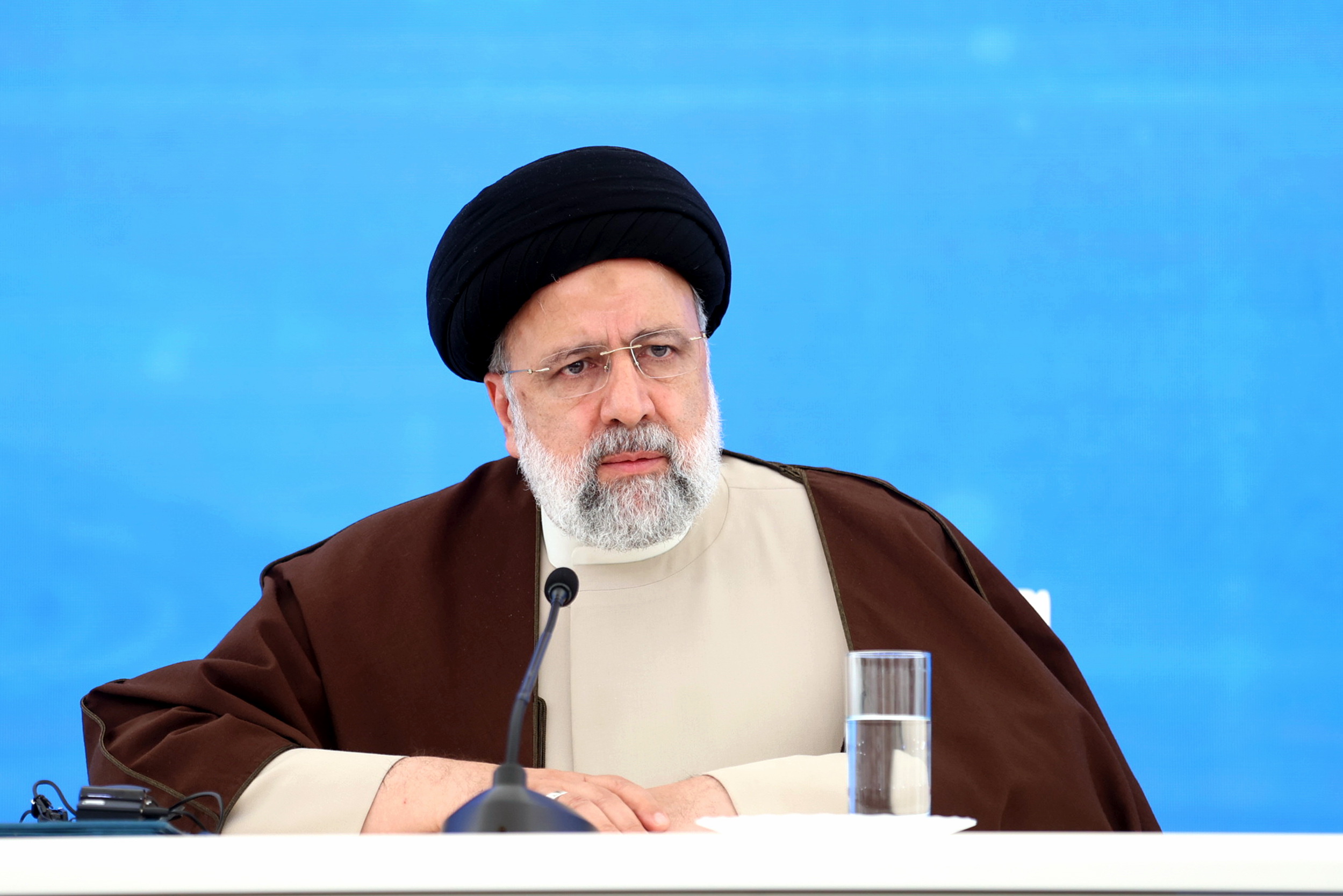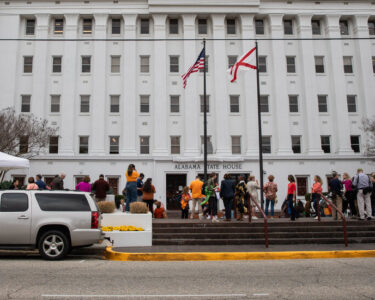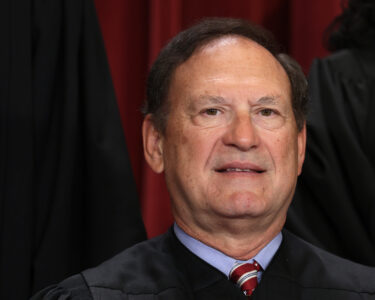Foreign affairs analysts weighed in on the uncertainty of Iranian President Ebrahim Raisi’s helicopter crash, with one warning on Sunday that a potential loss of life would “throw Iran’s leadership into turmoil.”
On Sunday afternoon local time, Raisi, a 63-year-old ultraconservative leader, was traveling home with his convoy from a trip to the Iran-Azerbaijan border when his helicopter went down in the mountainous northwestern Iranian province of East Azerbaijan.
It is unclear if Raisi and others on board, including Iranian Foreign Minister Hossein Amir-Abdollahian; Ayatollah Mohammad Ali Al-e-Hashem, the Friday prayers leader of Tabriz; and Governor of East Azerbaijan Province Malek Rahmati have survived the crash. A rescue mission is currently underway.
Raisi, a former judiciary chief who won Iran’s presidency in June 2021, is speculated to be a top pick to replace Iran’s Supreme Leader Ayatollah Ali Khamenei, 85, upon his death or resignation. The uncertainty surrounding Raisi’s survival in the crash has raised questions about how his potential death could shake the Middle Eastern nation.
Newsweek reached out to Iran’s foreign affairs ministry for any updates on the search effort.
Joel Rubin, a former deputy assistant secretary of state for House Affairs during the Obama administration, told Newsweek via text message on Sunday: “The possibility that President Raisi and his entourage may have been killed in a helicopter accident will have major ramifications both inside Iran and abroad.”
He continued: “That’s because Raisi had been handpicked by the Supreme Leader – the one who’s ultimately in charge in Iran – not only as his President but also as his likely heir. The loss of Raisi would throw Iran’s leadership into turmoil just as its moves internally and abroad are only growing more aggressive. We need to watch this development closely, and if Raisi is confirmed to have been killed in an accident, the days ahead will be extremely tense and uncertain inside Tehran.”
Trita Parsi, an award-winning author with a focus on U.S. foreign policy in the Middle East, broke down two immediate challenges that the Iranian regime would face if Raisi did not survive the crash.

Office of the President of the Islamic Republic of Iran via Getty Images
“One is that the vice president takes over, but they will have to have new elections within 50 days. And that’s going to be quite tough for them because [the regime is] extremely unpopular and we saw record low turnout in the parliamentary elections a week or two ago,” Parsi told Newsweek via telephone on Sunday.
He added: “For them to be able to drum up any enthusiasm in the country for elections, which from their standpoint is somewhat important because it gives a veneer of legitimate sense of the regime, that’s going to be quite challenging and it’s going to be a very intense power struggle of who the next president would be.”
Raisi won his election with almost 18 million votes out of the 28.9 million cast. Many moderate-leaning and liberal-leaning voters chose not to vote in the 2021 election as they felt that it was rigged in Raisi’s favor, according to The New York Times.
Parsi said the second challenge would be speculation about if foul play was a factor in the crash.
“Secondly is of course, because of the speculation that he was a contender or a leading contender to take over the position of supreme leader, that’s going to be quite challenging because even if this was just a completely legitimate accident, the high stakes, the tensions between Iran and Israel, and the mistrust, of course, that the population has at the regime and the media is going to fuel speculation that this was foul play and that it had something to do with the succession of who was going to take over the Supreme leadership position,” he said.
Concerns Over Raisi’s Record
Barbara Slavin, a distinguished fellow at the Stimson Center in Washington, D.C., an international security think tank, agreed that if Raisi had died, there would be a “possible impact on succession to Khamenei.”
“This is also a chance to elect someone marginally more competent and popular. Raisi’s nickname is ‘Mr. Sixth Grade’ for his lack of secular education and intellect. He is associated with summary executions in 1988 and with the vicious crackdown on the 2022 Women, Life, Freedom movement. So apart from the regime’s ever narrowing base, few tears for him will be shed inside or outside Iran if he has indeed died,” Slavin told Newsweek via text message.
Amnesty International, a human rights group, reported in 2018 and again in 2021 following Raisi’s election that he used to be a member of the “death commission,” which executed thousands of political dissidents in prisons near Tehran in 1988.
When asked about allegations that he was involved in the executions, Raisi told reporters: “If a judge, a prosecutor has defended the security of the people, he should be praised… I am proud to have defended human rights in every position I have held so far,” according to a Reuters article from June 2021.
The Women, Life, Freedom movement erupted following the death of Mahsa Amini, also known as Jina, after being detained by Iran’s morality police for not wearing a hijab correctly in September 2022.
Slavin added: “The likely successor to the foreign minister [who was in the crash] has been in charge of the nuclear file with the U.S. and is more savvy than Abdollahian,” referring to Ali Bagheri Kani, Iran’s deputy foreign minister.
Under Raisi’s leadership, Iran harbors uranium at almost weapons-grade levels and hinders international inspections, despite having signed a deal in 2015 with world powers to dismantle much of its nuclear program and allow for more extensive international inspections in exchange for billions of dollars’ worth of lifted sanctions. Iran began to ignore the terms of the nuclear deal, known as the Joint Comprehensive Plan of Action (JCPOA), a year after the U.S. withdrew from the pact in 2018.
Uncommon Knowledge
Newsweek is committed to challenging conventional wisdom and finding connections in the search for common ground.
Newsweek is committed to challenging conventional wisdom and finding connections in the search for common ground.




